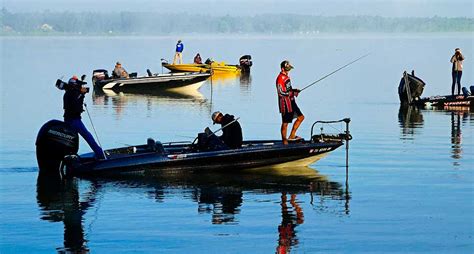Keep or Release? Ethical Bass Fishing Decisions
The tug on the line, the fight, the thrill of the catch – bass fishing offers an unparalleled connection with nature. But with that connection comes responsibility. The question of whether to keep or release a caught bass is a crucial ethical dilemma facing every angler, demanding careful consideration of conservation and sustainability. This article explores the key factors influencing this decision, aiming to provide anglers with a framework for ethical and responsible fishing practices.
What Factors Should I Consider Before Keeping a Bass?
Before you even think about keeping a bass, several factors warrant serious consideration. These go beyond simply checking the size regulations.
-
Size and Maturity: Most importantly, adhere to all local size and bag limits. These regulations are designed to protect breeding populations and ensure sustainable fishing. Releasing larger, mature bass allows them to continue spawning, contributing significantly to the future health of the fishery. Smaller bass, while seemingly insignificant, are crucial for population replenishment.
-
Health of the Fish: Assess the fish's condition. If the bass is visibly injured, lethargic, or stressed from the fight, releasing it is the most ethical choice. Handling it gently and quickly will increase its chances of survival. Deeply hooked fish should be considered for keeping if removal is safe and the fish would otherwise likely die.
-
Fishing Pressure and Location: Consider the overall fishing pressure on the body of water. If the lake or river is heavily fished, releasing more bass is even more critical. In areas with limited bass populations, responsible catch-and-release practices become essential for maintaining the fishery's health.
-
Your Own Fishing Goals: Be honest about your personal fishing goals. Are you primarily focused on catching and releasing, or are you targeting a specific number of fish for consumption? A mindful angler will balance their desire for a trophy fish with the long-term health of the fishery.
How Can I Improve My Catch and Release Techniques?
Catch and release is not merely about tossing a fish back into the water. It requires skillful handling to maximize the fish's survival chances.
-
Wet Hands: Always wet your hands before handling a fish to protect its slime coat, which plays a vital role in its health and protection against disease.
-
Minimize Air Exposure: Keep the fish in the water as much as possible during unhooking. Use quick-release tools to remove hooks efficiently and reduce stress.
-
Support the Fish: Support the bass's weight with your hand to prevent unnecessary strain on its body.
-
Proper Hook Removal: If the hook is deeply embedded, consider cutting the line close to the hook. This minimizes trauma and allows the fish to recover more readily. In some cases, seeking the help of a qualified individual is preferable to risking further injury.
-
Revive Before Release: Gently cradle the fish in the water, moving it back and forth to help it regain its equilibrium before releasing it.
What are the Long-Term Impacts of Keeping Too Many Bass?
Overfishing, particularly the removal of large, mature breeding bass, has devastating consequences. It can lead to:
-
Reduced Population Numbers: Lowering the number of reproductive females directly impacts future generations.
-
Smaller Average Size: Overfishing selectively removes the largest individuals, resulting in smaller average fish sizes over time.
-
Impaired Genetic Diversity: Removing a significant portion of the population can lead to a loss of genetic diversity, making the remaining population more vulnerable to disease and environmental changes.
What if I Accidentally Hook a Protected Species?
Accidents happen. If you accidentally hook a protected species, prioritize its safe release. Handle it with extreme care, minimizing handling time, and immediately contact your local fish and wildlife agency if necessary. They can provide guidance and potentially record the incident to aid in conservation efforts.
Conclusion: Responsible Angling for a Sustainable Future
Ethical bass fishing demands a conscientious approach. By understanding the factors affecting fish populations and employing proper catch and release techniques, anglers can ensure the long-term health and sustainability of these incredible resources. Remember, it's not just about the thrill of the catch; it's about responsible stewardship of our natural heritage. The decision to keep or release a bass should always be made with careful consideration, prioritizing the health of the ecosystem and the future of the sport.

